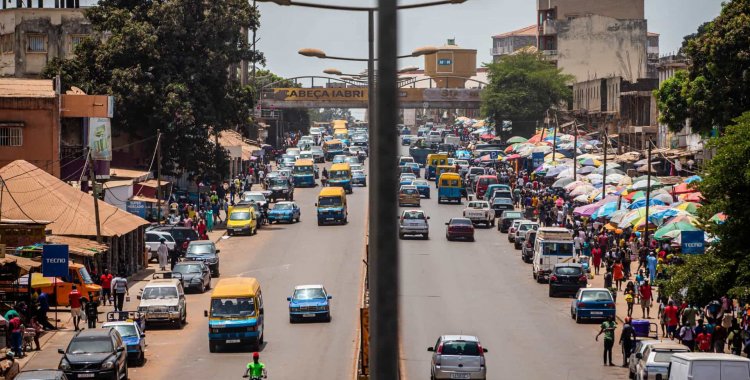In July, member states decided to postpone for 15 days the nomination of the country that would chair the organization, now in the hands of Angola, and Portuguese President Marcelo Rebelo de Sousa explained that it was due to the presidential elections in São Tomé and Príncipe , to find out if the winner would accept this role.
In a letter dated August 9, addressed to the CPLP executive secretary, the Timorese Zacarias da Costa, the Ministry of Foreign Affairs, International Cooperation and Communities of Guinea-Bissau communicated to all Member States the country's intention to host the next summit and asked for confirmation of their acceptance.
The Guinean diplomacy "has the honor to communicate to all member states of the organization, through the Executive Secretariat, the intention of the Republic of Guinea-Bissau to host the next Summit of Heads of State and Government of the CPLP scheduled for the year 2023, after 15 days have elapsed already foreseen for the announcement of the Member State responsible for its implementation", can be read in that document.
The letter also states that, for this purpose, the ministry "would like to obtain confirmation of the acceptance of this intention by the Member States", even admitting that a "verbal note" by the Executive Secretariat of the CPLP would be enough.
The Guinea-Bissau Embassy in the organization, for its part, requested on 10 August "information regarding the next Presidency of the Conference of Heads of State and Government of the CPLP".
In the document, also addressed to Zacarias da Costa, the diplomatic representation says that, taking into account the deliberation of the Luanda summit, "which set a period of fifteen days for a decision on the next Presidency of CPLP Heads of State and Government, and following instructions from above, he asked the Executive Secretariat to agree to provide pertinent information on the matter under consideration".
In response, Zacarias da Costa recalled that it is incumbent upon the leaders' conference to "elect a president from among its members on a rotational basis for a two-year term", so it is still "awaiting indication of the member states regarding to that theme".
Speaking to Lusa, the Guinea-Bissau ambassador in Lisbon, Hélder Vaz, stressed that his country had informed partners of this intention even at the Luanda summit.
According to Helder Vaz, the President of the Republic, Umaro Sissoco Embalo, conveyed this intention to the President hosting the summit, to the Head of State, João Lourenço, in Luanda, on 17 July.
On August 20, the CPLP headquarters received a "courtesy visit" by the minister of State, Foreign Affairs, International Cooperation and Communities of Guinea-Bissau, Suzi Barbosa, then informed the Portuguese-speaking organization in a statement, not putting forward the issue of conversations.
At the end of the Luanda summit, Marcelo Rebelo de Sousa justified not appointing a new country to preside over the CPLP, a decision that breaks with the tradition of the organization that celebrates 25 years: "There is a concrete state that has an imminent electoral act and pending the electoral act and the assumption of emerging responsibilities by the government of that State, it seemed to the Heads of State and Government that it was sensible to wait".
More recently, after the second round of presidential elections, the President-elect of São Tomé and Príncipe, Carlos Vila Nova, said, in an interview with Lusa, that he "would like a lot" for the country to "assume the presidency that in some way belongs to it. " and considered this to be one of the "priority dossiers" when occupying the People's Palace from 4 October.
"It is necessary to know the dossier and a very deep analysis is necessary, because when we assume this role we would have to do it with the dimension and competence that are required of each country in this exercise", commented Vila Nova, who should take office in the early October.
"We have to face and resolve because the organization itself cannot feel affected by a decision taken late or by a non-decision", he considered.
Guinea-Bissau expresses formal interest in succeeding Angola in the presidency of CPLP
Guinea-Bissau has formally expressed interest in presiding over the Community of Portuguese Language Countries (CPLP) from 2023, already after the Luanda summit, in July, according to documentation available to Lusa.







